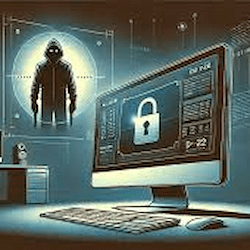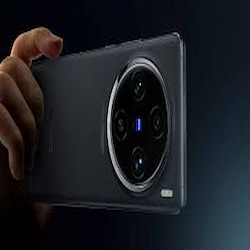Students now have greater access to the digital world because to technology and the growth of the internet. Since many people are ignorant of the dangers associated with the internet and are unsure of how to keep their computers safe, this digital connection is problematic.
Since students must attend classes and finish assignments, a computer is a necessity in their lives. However, utilizing the internet requires taking some safeguards. Here’s how to protect your university PC.
Securing Your College Computer, Set up and maintain anti-virus and anti-malware software.
By detecting, eliminating, or preventing harmful software from operating, an antivirus protects your computer. Anti-malware software, on the other hand, targets Trojan horses, worms, and spyware, among other dangerous programs. Installing these protectors is essential because they protect your device from apps that could damage it, erase data, or cause it to operate poorly.
Imagine a scenario where a virus attacks your computer, destroying your weeks-long study report just before you submit it. You might not have the time to redo it, which could be annoying. The question, “Who can I hire to write my exam?” may cross your mind. It’s crucial to keep your antivirus and anti-malware software up to date because this guarantees that they can identify emerging dangers and stop them from assaulting your computer.
READ ALSO: The Amazon Echo Dot With Alexa
Securing Your College Computer: Use Robust Passwords
Strong passwords are crucial for computer security since they are difficult to crack. They make it more difficult for hackers to figure out your login. To make the passkey as complex as feasible, combine alphanumeric and special characters when creating a password for an online account.
Avoid using the same passkey for all of your accounts. Why? Hackers will be able to access all of your accounts if one of them is compromised. The difficulty of remembering numerous passwords is one of the main obstacles to using multiple accounts. However, since the passwords can be kept in a password manager, this need not be difficult. Just make sure that two-factor authentication is in place to protect your password manager.
Enable a Firewall
A program called a firewall guards against hackers attempting to access and utilize your computer. It is advantageous to use a firewall on your computer since it actively monitors all incoming and outgoing traffic and blocks illegal connections. Because of the blocking of this traffic, your computer is safe from internet threats, virus infections, and hacker attacks.
By removing traffic hazards such as outgoing traffic, internet transactions, application layer traffic, connectivity, and communications, a firewall serves as a protective barrier between your computer and the internet. For this reason, having fast internet, such as cable or DSL, is essential. Firewalls are a built-in component of some computers, but they might be disabled. Therefore, confirm that your firewall is up to date and that it is activated.
Update Your Operating System
Updating your browser and programs can help you get rid of software bugs. These are the weaknesses that allow hackers to track your online activity and even steal your personal information. Updates include security improvements and operating system upgrades that help keep malware, viruses, and other online dangers from affecting the device. Because the protection on your computer has been upgraded, applying these updates helps you keep it safe. Additionally, it prevents incompatibilities and enhances operating system speed. To keep the computer safe, regularly check for and install OS updates.
Securing your College Computer, Be careful when Clicking Random Links
Cybercriminals have advanced their phishing strategies to new heights. They create websites that look authentic. They may pose as amiable and send emails that contain links to a hacked website from what might appear to be a real friend or company. Emails aren’t the only way, though, that cybercriminals obtain victim data and files. Social networks, chats, instant messaging, and gaming platforms are additional areas that need to be used with prudence.
When using a personal computer, caution is advised to prevent the acquisition and installation of dangerous software. Malicious software has the ability to take over your computer, erase files, and steal personal data, among other things. You might not be able to determine if a website is trustworthy or an attacker’s site if you click on a random link from your browser. Therefore, it’s crucial to verify a website’s legitimacy before clicking on any links in order to prevent being attacked.
READ ALSO: Educational attractions to visit as a student in China
Avoid Using Public Wi-Fi Networks
Convenience is provided by public Wi-Fi; among other internet activities, you can buy essays online, conduct rapid research on an assignment topic, and download educational resources while dining. But most public Wi-Fi isn’t secured, so anyone in the same network may see what you’re doing online. Furthermore, the majority of public Wi-Fi networks make use of inexpensive, low-security routers and access points. It’s crucial to use caution when utilizing public Wi-Fi, despite its convenience. Cybercriminals utilize their technical expertise to infiltrate unprotected networks in order to spy on and steal personal data. Identity theft is the largest risk associated with utilizing public Wi-Fi. Hackers can build phishing emails and cyberattacks using the information they have stolen from a target. Other risks include:
Profiling of victims.
Theft of passwords is possible.
Attacks using malware and ransomware.
Hijacking a session.
Leakage of private information.
Securing Your College Compter, Summary
The majority of students ignore data theft, but it should be treated seriously and is something to be cautious about. By using the internet responsibly and using caution when disclosing personal information, you may protect yourself from cyberattacks. By practicing responsible browsing, you can protect your devices and information. Don’t forget to periodically back up your data. You can access your information in the event that your computer fails, becomes infected with malware, or is stolen if you back up your vital data and store your most important files on a different device.



